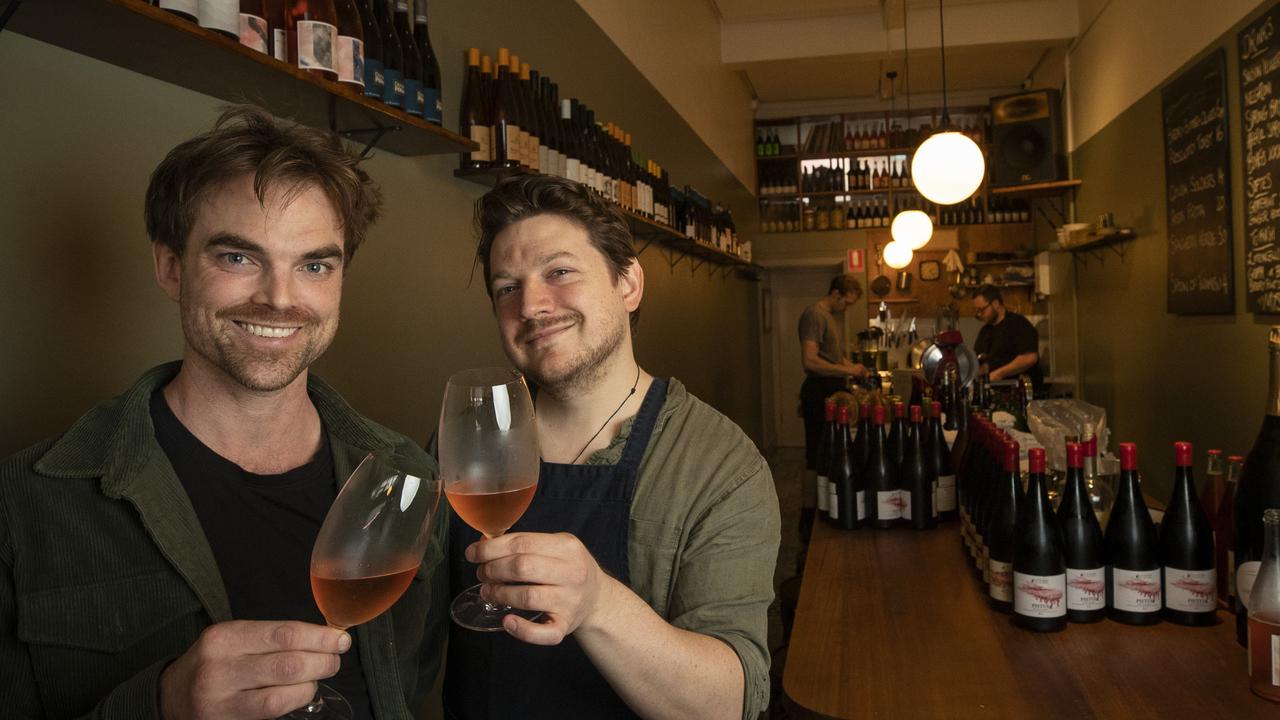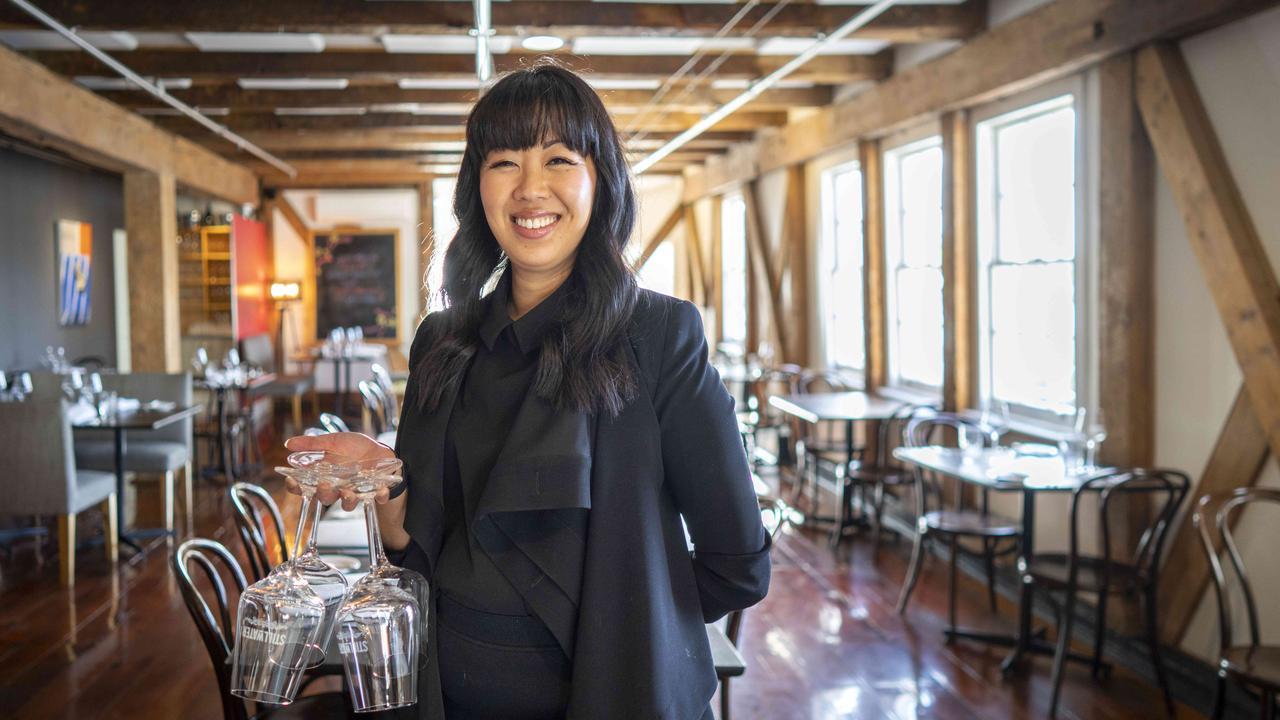TasWeekend: Freedom campers stand firm against critics
They call it freedom camping, and it’s a lifestyle many envy. But it’s those who live there who are left to pick up the tab.
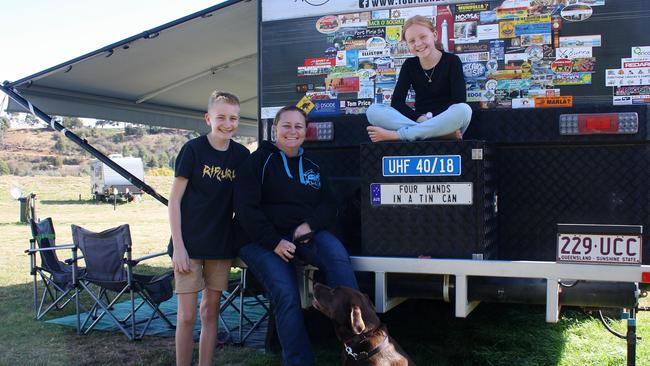
Lifestyle
Don't miss out on the headlines from Lifestyle. Followed categories will be added to My News.
Annie Millward is living the Australian dream. She wears Uggies to work and her open-plan office is often a camp chair parked under the canopy of her family caravan being driven around the country. “Life is for living,” she says as she nods towards tonight’s surrounds, a spacious $10-a-night campground by a fishing lake that’s within cooee of Launceston. Millward and her young family are professional nomads. For the past three years they’ve zigzagged their way around the continent, plonking down mostly at council-run or community-run camp sites. The family of four, with Dad Paul, Liam, 11, and Mia, 8, has turned full-time travelling into a business by road-testing camping goods for their 8000 plus Facebook and Instagram followers and for write-ups on their travel blog. Everything from their car to their jumpers has the family’s brand emblazoned on it.
The Millwards don’t need much to keep their show on the road. Their custom-made rig is kitted out with all the bells and whistles, and is mostly self-contained aside from needing the occasional top-up of clean water and a place to empty out the waste water. Solar panels power up the family’s washing machine along with the van’s three flatscreen TVs — a necessity for the kids. These days, it’s not about packing the kitchen sink so much, it’s more about fitting in the dishwasher.

“A lot of people have commented to us along the way, ‘Wow, you’ve been to places we’ve never seen and we’ve lived here forever’,” Millward says. “We’re very fortunate. And it’s freedom camping [which means staying at either free or low-cost campsites] that’s allowed us to do that. If we had to pay every night, to be honest, we couldn’t afford to travel.”
But not everyone’s happy about freedom campers descending on their towns. Just behind the main street of Zeehan, caravan park owner Clayton McCudden is weeks away from closing his business. At the end of the month he and partner Ali Collier will stop offering powered and unpowered sites to travellers on the West Coast because they say they can no longer compete with the council undercutting their business.
“The key point with free camping is that it isn’t actually free: local ratepayers pick up the tab for the cost by paying for things like water, sewage, rubbish removal and insurance in their rates,” he says.
“Every other type of tourist that comes to Tassie pays their own way. It’s only the free campers that get money from the public purse, and as caravan park owners that severely impacts us. As a substantial ratepayer, I’m funding their holiday,” he says.
McCudden is quick to point out that by offering free or donation-style camping, councils are ignoring a 2017 ruling by the economic regulator that stipulates public entities must compete on “fair and equal terms” with private sector businesses.
In McCudden’s view, groups offering free or low-cost campsites — including council-owned recreation grounds, sporting clubs, pubs or other businesses offering the use of their car parks (and now with the rise of apps such as YouCamp, anyone with acreage wanting to lease it out for a buck) — are deemed as being in direct competition.
“Free camping should be restricted to the bush only,” he says. He’s not alone in his belief. Rowen Carter, co-owner of Huon Valley Caravan Park in the state’s south says the caravan park industry is on its death bed and needs help.
“It’s dire,” he says. “If the Government doesn’t step in and provide us with a level playing field — and by that I mean apply the same regulations to low-cost camping that caravan parks by law must adhere to — then I guarantee that within 10 years there’ll be fewer than 10 caravan parks left in the state.”
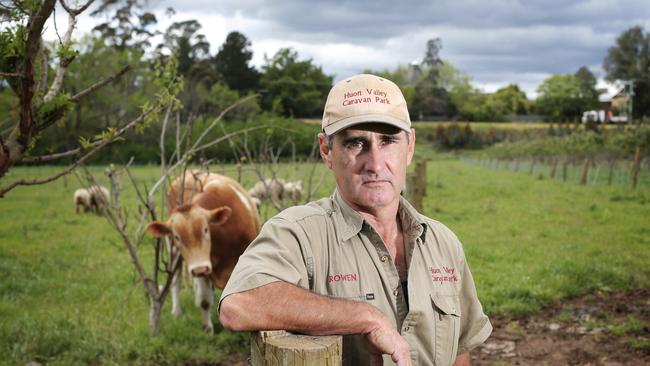
Carter, who is chairman of Caravanning Tasmania, says his group isn’t opposed to free camping, but thinks it should be limited to wilderness areas. And he strongly believes councils should stay away from offering visitor accommodation.
“Our members are really battling. [Free camping] goes against economic policy of high-yielding tourism and economic dispersal. Tasmania is supposed to be for small business,” he says.
“Not only has [free camping] cut our income, but the council has cut the value of our capital investment,” says Carter. “We’re not asking for handouts. All we want is protection from our own councils, which is a terrible thing to need to ask.”
Carter, who has built his commercial park from the ground up, explains that to meet council regulations, he and wife Leanne have complied with a plethora of requirements, including environmental and traffic impact assessments, Aboriginal relic surveys, fire and flood evacuation plans, and drainage and bushfire hazard management plans: none of which is imposed on council-run or community-run freedom campsites.
Carter, a prominent voice in the fight against unregulated camping, says he’s hit a wall with the Government. In a statement released last month titled “Tasmania is open for business”, Treasurer Peter Gutwein, whose department free camping falls into, says “There’s no better place [than Tasmania] that caters for the free and low-cost camping market.”
The release explains that no camping sites have closed or are flagged to close, and that in fact “councils can now be exempted from the rules”. It’s unhappy news for Carter and the state’s few remaining caravan park operators.
Retired Queensland couple Jo and Will Dickinson from Maleny are touring the state in a hired campervan. Like many self-drive travellers their accommodation is a mix between free or low-cost camping interspersed with nights spent in caravan parks. The couple prefer to free camp whenever possible to offset the $200 per night cost for van hire.
“Oftentimes, entering a caravan park is like driving into a corrall,” says Jo. “There’s no atmosphere, there’s often nothing to look at, you’re parked in like sardines and you have to pay for that privilege. At many parks the amenities need updating, because although serviceable they’re fairly drab.”
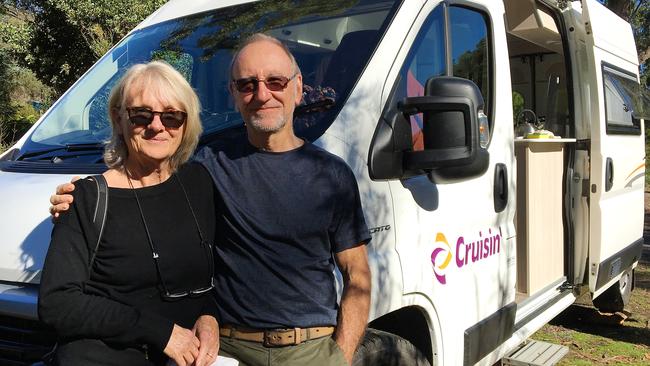
Others in the so-called Grey Nomad tribe feel similarly. Along with the cost of caravan parks (average of $40 a night) and premium petrol prices, the other biggest complaint within the mobile community is the $2500 on-average cost of towing a campervan across from the mainland on the Spirit of Tasmania. Many say without freedom camping to offset the cost, they would simply bypass the state.
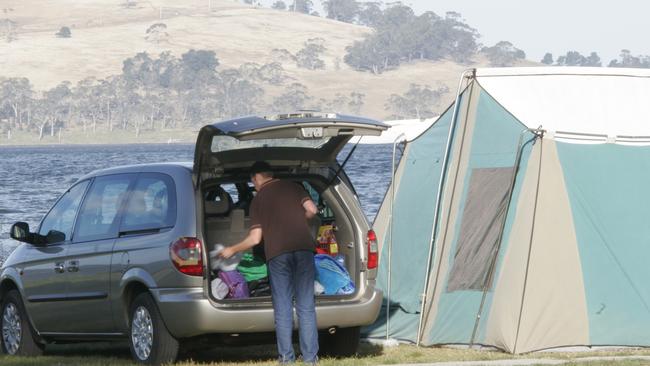
Perhaps the answer lies in the way Left of Field caravan park operates. The 20-van site near the entrance to Mt Field National Park feels more like a nature reserve than a traditional caravan park. It’s rated by the Millward family as one of the best sites in the country. Owner Adrian Fogarty accomplishes this by practising site sustainability. Each of his generously sized van sites is set far away from neighbours to retain a bush feel. Although he has a permit to cater for plenty more vans, he prefers to cap numbers at 20, and doesn’t hesitate to direct overflow traffic to the council-run free campsite adjacent to his property.
“It’s not about how many people you can take, it’s about how many you should take,” Fogarty says.
“From a commercial point of view [caravan parks] are at an unfair bias, but maybe we don’t need to shut [free camps] down, we just need to manage them.”
His solution is a ticketed system, similar to a parks pass. He thinks visitors coming off the Spirit or collecting vehicles from campervan hire companies should be made to pay for a “free camp” sticker depending on what level of self-sufficiency their van offers. Visitors can then camp at designated spots according to that site’s rulings on van numbers and types — monitored by community groups — and have the onus put back on campers to keep the sites rubbish free.
So far, Fogarty’s solution is the only one put forward in a protracted debate awash with inaction.
But whatever the solution, it needs to come quickly, as more tourists come to revel in the state’s natural wonders and ancient fossils, and before the caravanning industry becomes a relic itself.●

